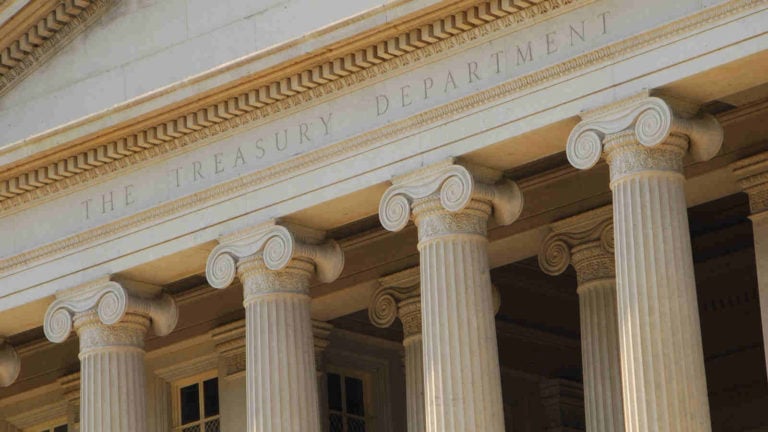Some economists fear that the X-date, or the day the U.S. defaults on its debt, is coming up on June 1. With this in mind, a number of outlandish ideas have entered the spotlight ways to avoid a default and to help clear up the Congressional traffic jam. As a quick recap, Republicans and Democrats are largely at odds about whether to raise the debt ceiling.
So where do we go from here? Some lawmakers have started to throw out suggestions for what to do if the debt ceiling deadline passes by. Republicans have suggested forcing the Treasury to give priority to certain payment types — to bondholders and Social Security, for example.
According to Treasury Secretary Janet Yellen, however, even if something like that were possible, it would still mean entering default when the country fails to make its payments.
“Even the prioritization of interest in debt I think it’s fair to say is not a foolproof way by any stretch of the imagination for avoiding economic and financial bedlam,” Yellen said.
Avoiding Default Without Congress
So is there a way to avoid default and keep from relying on Congress?
Nobel Laureate Paul Krugman suggested minting a $1 trillion platinum coin to eschew Congress altogether. A legal loophole allows the Treasury to mint platinum coinage with high values. These coins would be deposited at the Federal Reserve and could then be used to pay down debt. Economists have actually floated the idea several times over the past few decades. Unfortunately, Yellen has also repeatedly
“It truly is not by any means to be taken as a given that the Fed would do it, and I think especially with something that’s a gimmick,” Yellen told the Wall Street Journal in January. “The Fed is not required to accept it, there’s no requirement on the part of the Fed. It’s up to them what to do.”
Others shave considered issuing debt as a power of the 14th Amendment, which states the legitimacy of U.S. debt “shall not be questioned.” Even President Joe Biden has given some credence to the idea, stating the White House is exploring the option. Although, he also maintains he doesn’t believe it would be an adequate substitution for Congressional legislation.
The reality is, it’s up to Congress to raise the debt ceiling. In that regard, some have already begun exploring just how bad a U.S. government default would be (spoilers: it’s really bad). Read more on what happens if the U.S. defaults here.
On the date of publication, Shrey Dua did not hold (either directly or indirectly) any positions in the securities mentioned in this article. The opinions expressed in this article are those of the writer, subject to the InvestorPlace.com Publishing Guidelines.

